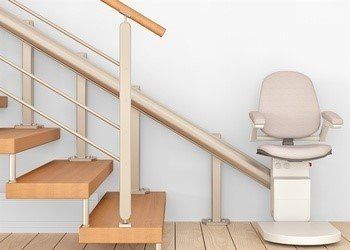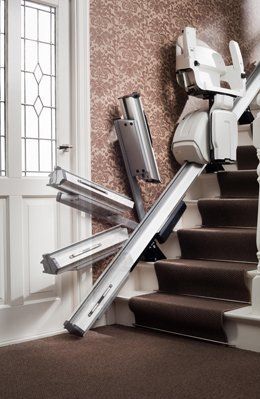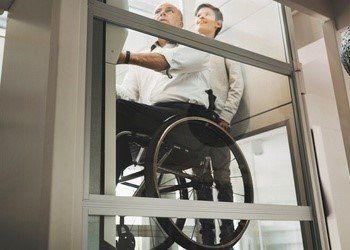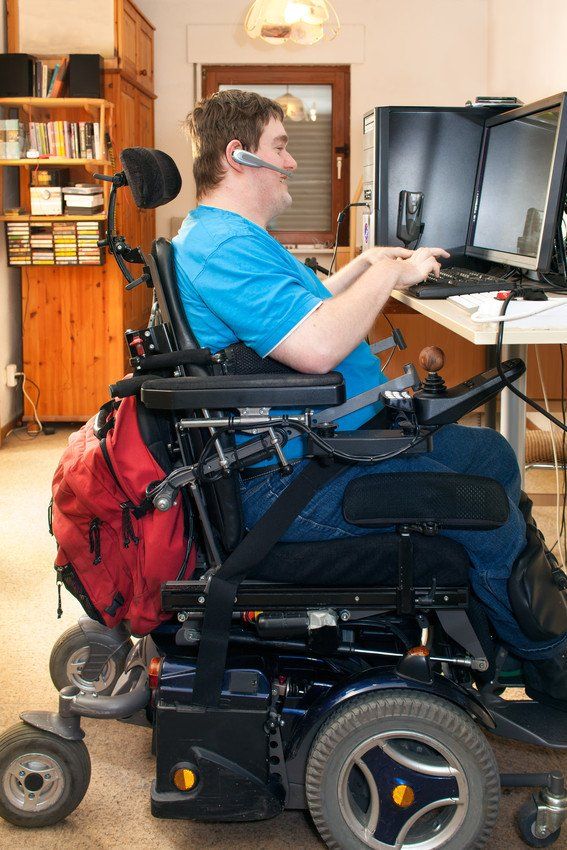Medical Conditions That Require Installing a Chairlift For Stairs
- by Alfix Stairlifts
- •
- 29 Apr, 2019
- •
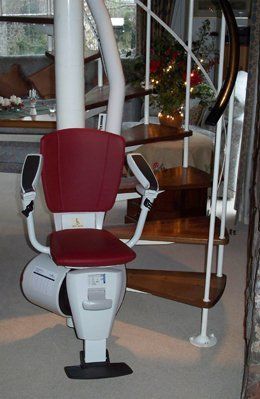
It’s no secret that those who suffer from mobility issues can have difficulty living life to the fullest. But this doesn’t mean that they shouldn’t have the same quality of life that others do. Mobility aids can help those who struggle to feel more independent, confident and free, as well as reduce any pain and discomfort.
From bathroom lifts to walking aids, there are many mobility aids available. One of the most popular for the home though are chairlifts for stairs, to help those with mobility issues to be able to explore the house without having to move home altogether. However, who requires a stairlift for the home and who is eligible for financial help?
This blog explores which medical conditions may require the need of a chairlift for stairs along with what funding and support is available including government schemes, charities and helpful tips.
For those who have a physical or mental condition that means that their movement, activity levels or senses are affected, mobility aids are essential to everyday life, including stairlifts in the home. Whether an individual has been disabled from birth, since became disabled from a medical condition or unfortunate accident or is slowly struggling in their old age, those who might require a stairlift isn’t so black and white and there is no right answer.
Medical conditions progress differently depending on the person and mobility can improve over time too. Disabilities can change over time, and more and more treatments are being developed; one who might need a stairlift now, may not need it in the future and vice versa. With this in mind, there are no strict set of eligibility requirements put in place for those who might need a stairlift, however, there are some loose guidelines and people who can help determine whether a stairlift is needed.
Much of the population use mobility aids every single day to help reduce the risk of falling or progressing their condition. As well as physical and medical benefits, there are also many mental and emotional benefits including boosting independence levels, self-esteem and helping people to maintain their current lifestyle. Many also have the benefit of receiving help and support from carers, social workers or occupational therapists (OT) too. These healthcare professionals are the ones to turn to to discuss any lifestyle changes and having mobility aids installed within the home.
As we get older, we tend to suffer from mobility issues and can become more prone to medical conditions. However, some conditions simply affect us at any time in life; for example, arthritis and its many variations can affect any individual, even those from a young age. It’s commonly recommended that if you suffer from arthritis, that a mobility aid like a stairlift can heavily benefit you. This is particularly relevant for those diagnosed with rheumatoid arthritis and osteoarthritis as both cause joint pain, stiffness and can either attack healthy muscle tissue or the bone. If you suffer from joint pain in the legs, a perched stairlift may be the best option for you.
Along with arthritis, there are many other conditions that can affect people of all ages. These include conditions like multiple sclerosis. MS is a known culprit for affecting mobility and, for those days when the stairs can seem impossible, a stairlift is a welcome helping hand. However, if you’re someone suffering from MS, ask an OT’s advice and talk it through with them first before going ahead. For more information regarding help and support for those living with MS, visit the MS Society website.
MS and arthritis may affect the joints, but stairlifts can also be advised for those suffering from invisible conditions such as heart or lung problems as physical activity and tackling steep stairs puts a strain on our vital organs. Additionally, stairlifts can also be recommended for those with spina bifida, diabetic ulcers and wounds, walking impairments due to a brain injury or stroke, visual impairment or blindness, a range of injuries and accidents from broken bones to amputations, disabilities such as cerebral palsy and much more. As we’ve previously mentioned, there simply isn’t a black and white answer when deciding who may or may not require a stairlift.
Financial help with stairlifts and disabled lifts
If you believe that you or a loved one is in need of a stairlift, or have been advised by an OT to do so, the next step would be looking into the installation including type of stairlift and cost. However, a stairlift is a big investment and you may have concerns about how to pay for it.
Before getting too worried or discarding the idea of getting a stairlift or wheelchair lift because of cost, consider that you may be eligible for financial help. Let’s take a look at the multiple grants, schemes and funding available:
Government grant - The Disabled Facilities Grant
Available for those living in England, Wales and Northern Ireland, the Disabled Facilities Grant is a government-funded grant awarded to eligible disabled individuals. This grant can be for a range of home improvements including stairlifts, ramps, bathroom aids and more.
How much you are given depends on household income and household savings over £6,000 and, depending on where you live, these amounts can vary. In England the maximum grant is £30,000, Wales is £36,000 and Northern Ireland is £25,000.
To apply, you’ll need to contact your local council and fill out a relevant form. From there, your council may send an OT to evaluate your circumstances and what changes are needed.
Unfortunately, this is not available for those in Scotland - alternatively, the Scheme of Assistance and Help to Adapt scheme are options available.
Independence at Home is a charity that offers grants of up to £2,000 to pay for or put towards the cost of home adaptations and mobility aids. Aiming to help improve the quality of life and independence of those who are disabled or suffering a long-term illness.
To apply and be considered, you will need to be referred to Independence at Home by an occupational therapist, nurse, physiotherapist or social worker. They’ll need to write a letter to them detailing your situation and how the grant would be helpful, along with a report regarding medical diagnosis, requirements and a financial quote for mobility aids, e.g. a stairlift company.
Also a registered charity, Margaret’s Fund offers small disability grants to help with costs of specialist equipment including stairlifts. However, this fund only helps unwell women from an economically disadvantaged background. Similar to Independence at Home, an individual cannot apply themselves and they’ll need a healthcare professional such as an OT or social worker to apply on their behalf.
RABI - Royal Agricultural Benevolent Institution
The RABI is a welfare charity and the oldest and largest charity for those in the farming industry. There are lots of opportunities for funding for those farming families in financial hardship, but they offer long-term support for those in need of disability and mobility aids including stairlifts, scooters and more.
To apply, you’ll need to call their free helpline on 0808 281 9490 and they can advise you. Then, you’ll need to complete an application form whilst providing financial information and proof you’ve worked in the farming industry for 10+ years. A decision will be made within 6-8 weeks, as this is when the committee meets.
The SSAFA is a charity providing support to men, women and veterans who are currently serving or who have served in the British Armed Forces, along with their families. Like RABI, they can offer assistance and grants for mobility aids including stairlifts. To begin the application process, call their free helpline on 0800 731 4880.
Those thinking about mobility aids and stairlifts may be eligible for relief from any VAT rates. A 0% VAT eligibility depends on whether you meet certain criteria set out by HMRC - the person must be ‘chronically sick or disabled’ and the stairlift must be for personal use. For more information on eligibility and how to apply, find out here.
Consider reconditioned used stairlifts
If you happen to not qualify for any grants or schemes or you’re still nervous about the cost of a stairlift, why not consider purchasing a used stairlift that has been reconditioned by a stairlift company? These will cost less than a brand new one yet still work efficiently and effectively. Talk to our team today about reconditioned straight and curved stairlifts for advice.
Alfix Stairlifts - providing a range of stairlifts and wheelchair stairlifts to those living in the UK
At Alfix Stairlifts, we provide a whole range of stairlifts to those in need in and around Oxford, Gloucester, Worcester and more in the Midlands area. Our team can also offer advice for the best stairlift for your home and provide free home visits and assessments.
From straight and curved to seated and perched, our fully trained stairlift engineers provide a high-quality service. For more information regarding our stairlifts, get in touch with us today.


